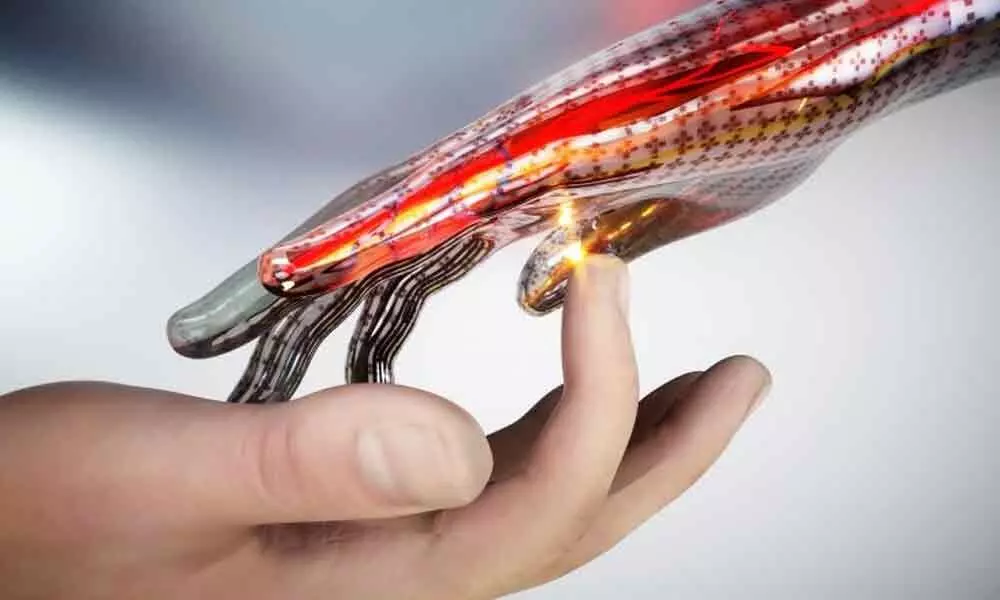New electronic skin can react to pain like human skin: Study

New electronic skin can react to pain like human skin
Researchers, including one of Indian-origin, have developed electronic artificial skin that reacts to pain just like real skin, opening the way to better prosthetics, smarter robotics and non-invasive alternatives to skin grafts
Sydney: Researchers, including one of Indian-origin, have developed electronic artificial skin that reacts to pain just like real skin, opening the way to better prosthetics, smarter robotics and non-invasive alternatives to skin grafts.
The prototype device developed by a team at RMIT University in Australia can electronically replicate the way human skin senses pain, the study published in the journal Advanced Intelligent Systems, reported.
The device mimics the body's near-instant feedback response and can react to painful sensations with the same lighting speed that nerve signals travel to the brain.
According to the researchers, the pain-sensing prototype was a significant advance towards next-generation biomedical technologies and intelligent robotics.Skin is our body's largest sensory organ, with complex features designed to send rapid-fire warning signals when anything hurts, they said.
"We're sensing things all the time through the skin but our pain response only kicks in at a certain point, like when we touch something too hot or too sharp," said study author Madhu Bhaskaran from RMIT University.
"No electronic technologies have been able to realistically mimic that very human feeling of pain - until now. Our artificial skin reacts instantly when pressure, heat or cold reach a painful threshold," Bhaskaran explained.
The new research combines three technologies previously pioneered and patented by the team -- stretchable electronics, temperature-reactive coatings and .rain-mimicking memoryStretchable electronics: combining oxide materials with biocompatible silicon to deliver transparent, unbreakable and wearable electronics as thin as a sticker.
Temperature-reactive coatings: self-modifying coatings 1,000 times thinner than a human hair based on a material that transforms in response to heat.Brain-mimicking memory: electronic memory cells that imitate the way the brain uses long-term memory to recall and retain previous information.
The pressure sensor prototype combines stretchable electronics and long-term memory cells, the heat sensor brings together temperature-reactive coatings and memory, while the pain sensor integrates all three technologies.
According to the team, the memory cells in each prototype were responsible for triggering a response when the pressure, heat or pain reached a set threshold.
"We've essentially created the first electronic somatosensors - replicating the key features of the body's complex system of neurons, neural pathways and receptors that drive our perception of sensory stimuli," said study researcher Md Ataur Rahman.
"While some existing technologies have used electrical signals to mimic different levels of pain, these new devices can react to real mechanical pressure, temperature and pain, and deliver the right electronic response," he noted.















